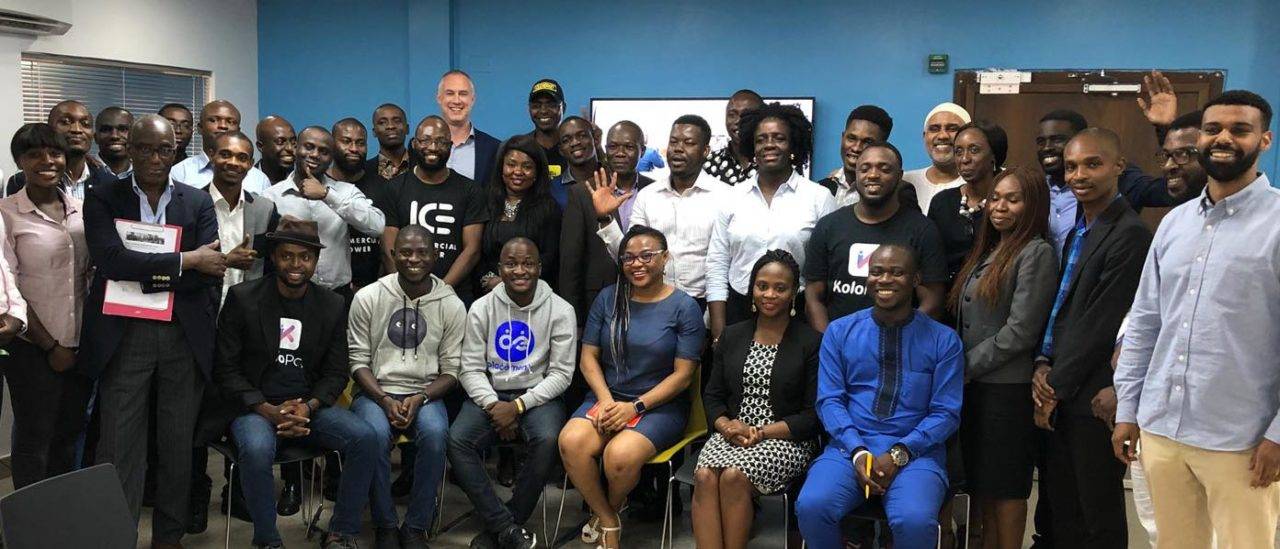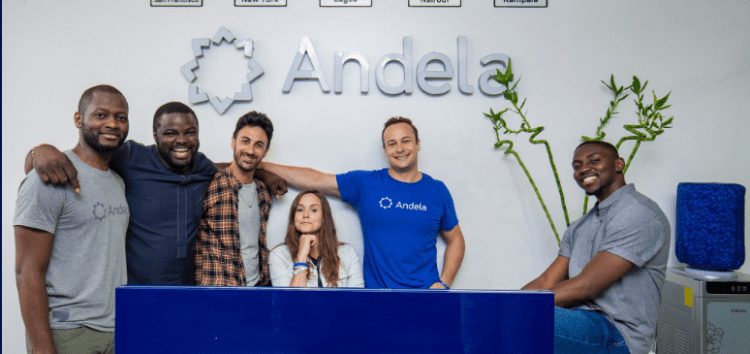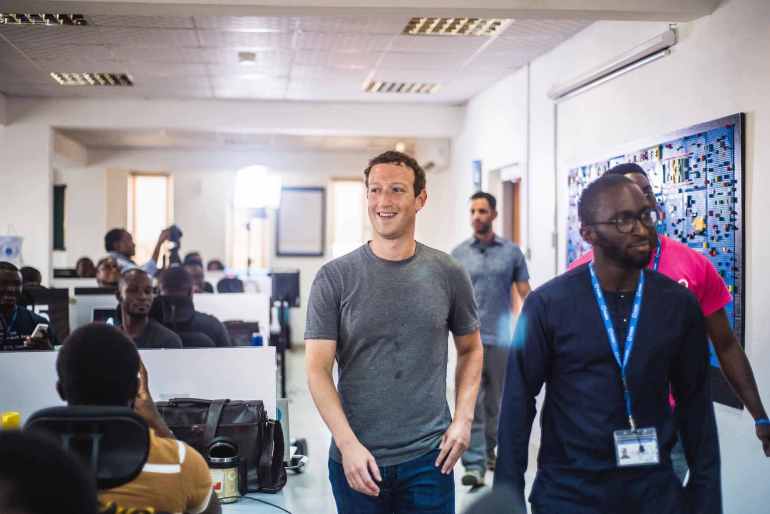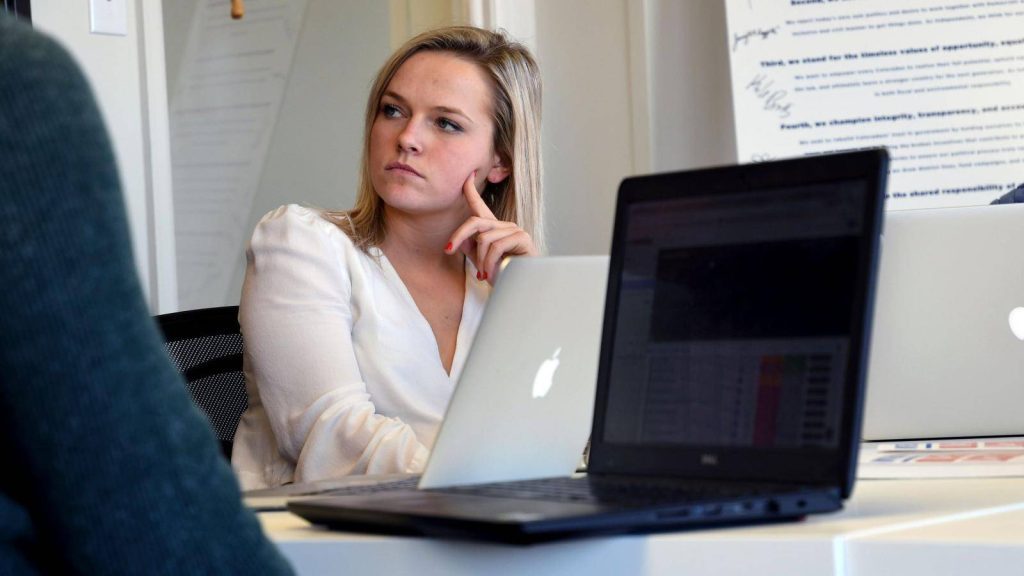Expat-Founders Favoured? How Investor Bias Might Just Be Hurting Core African Startups

It came as a solitary, innocuous Instagram post, hitting the social web in the early hours of Wednesday, 17th April 2019, and soon after the bean was spilt, tech birds began to chirp non-stop for the next few days.
It was an announcement no one saw coming; not even tech savants could’ve foretold this one. Apparently, 23-time tennis Grand Slam champion, Serena Williams, has interests that extend beyond both sides of the court; interests that go way beyond dishing out those trademark powerful serves and back-handed swerving returns that have served her so well in what has been a stellar career in the game.
The ripple-causing revelation was laid bare in a social media post in which the tennis star revealed that she’s been making some venture capital moves under the radar since 2014. At this juncture, one would be permitted to say that the celebrity sportswoman sure knows how to keep a secret, which is more than can be said for many persons of similar status.
Oh, let’s face it; celebrities suck at keeping a lid on things. Some actually became celebrities by not having a “lid” at all and, ironically, there are those ones who happen to thrive on breaking the lid with their very own hands and asking that no one tries to take a peek at what’s on the inside when, in truth, they’re actually counting on the opposite.
Okay, back to the Serena situation. Well, it turns out that, under our very noses, the successful athlete has been making plays in areas other than the court for nearly five years. Through her VC firm, Serena Ventures, she’s made quite some headway in the area of offering opportunities to tech startup founders across an array of industries.
According to a similar post put up about the same time, this time on Twitter, by her spouse, Alexis Ohanian Sr., the tennis star has been quietly angel investing in a number of remarkable startups both home and abroad including the likes of Coinbase, Impossible Foods, The Wing, and many others.
The @serenawilliams has been quietly angel investing some rermarkable startups: @coinbase @gobbleinc @the_wing @tonal @ImpossibleFoods and more…https://t.co/lcc3nDhzQP
— Alexis Ohanian Sr. ? (@alexisohanian) April 17, 2019
As a matter of fact, perhaps true to the company’s thesis that it invests in companies that embrace diverse leadership, individual empowerment, creativity, and opportunity, the VC firm currently has no less than 30 tech startups in its portfolio, most of whom are based in the United States except for a few cases where the VC firm decided to step outside the “silicon bubble.”
And as should’ve been expected, one of those few cases happen to be Andela; the Africa-focused developer training and outsourcing company that was launched in Nigeria in 2014, and which currently has operations in four African countries, and already boasts a roster of several high-profile investors including the “THE” Mark Zuckerberg and a former vice president of the United States.
Sure enough, as though it were coming out of the closet, it was only a matter of hours before Andela also resorted to Twitter to confirm its connections to Serena Ventures having been the recipient of funds from the VC in a recent funding round. But we should’ve seen it coming, it had to have been Andela, or maybe Jumia or Neopenda.
And @Andela !!!!! https://t.co/e2XaKxSdEI
— Andela (@Andela) April 18, 2019
Just like that, the cat had been let out of the bag but the initial element of excitement and surprise that trailed the revelation soon gave way for a feeling that is becoming a familiar one in the African startup ecosystem.
One that goes something like this: “So, you’ve raised big money in several rounds and you roll with the big shots too but isn’t that just because you have “sugar daddies” carrying your water halfway around the world?”
And then, there are those who would go as far as throwing in jibes like; Are you even really an African company or just a company in Africa? Would you have pulled it off if you didn’t have foreign fingerprints all over you?
Now, such a train of thought may come across as jaundiced and perhaps uncalled for, but you get the feeling there may be something of a legitimate claim there.
I mean, maybe it’d have sounded only the right notes if the word did get out that Serena Ventures did, in fact, put in say USD 10 Mn in, say, Odiggo or Mookh. At least, those are companies wholly locally-owned and locally-bred, and ran by “regular” Africans in Africa, without any emissaries on the western front pulling the strings abroad.
So, What’s The Problem?

Source: technext.ng
Andela prides itself as an African company that identifies and develops software developers. The company launched operations in Nigeria in 2014 and since then, it’s helped global technological firms overcome the severe shortage of skilled software developers by unearthing skilled individuals in markets that are not traditionally known as tech hubs.
Andela is incorporated in the United States, though it currently has offices in Nigeria, Kenya, Rwanda, and Uganda. On its list of co-founders, it has two Americans (Jeremy Johnson and Christina Sass), two Nigerians (Iyinoluwa Aboyeji and Nadayar Enegesi), one Canadian (Ian Carnevale), and one Cameroonian (Brice Nkengsa).
To the company’s credit, it has raised up to USD 180 Mn in funding since inception, making it one of Africa’s best-funded tech companies and one of the few on the continent courted and invested in by tech heavyweights like Mark Zuckerberg – one of the most important persons in Silicon Valley.

Source: techpoint.ng
It started out as Fora; a distance learning platform for African universities, set up by Ian, Nadayar, Brice, and Iyinoluwa but eventually morphed into Andela after the initial idea hit a snag and pivoting to a platform that would unearth the best tech talents on the continent seemed like the way forward.
By bringing in like-minded individuals in persons like Jeremy and Christina who themselves had been tinkering with the idea and were willing to drop some commitments to pursue the cause, Fora became Andela and between then and now, it’s been win after win for the company.
And a generous chunk of the credit could be directed to the Nigerian, Iyinoluwa Aboyeji, whose relentless push saw to it that the company launched in Nigeria and spread to some other African countries even as the parent company is based in the U.S.
Of course, questions have been raised in that regard, some of which the said Nigerian appears to dispel in a post on the Medium titled: How Andela Was Founded, in which a paragraph reads thus:
“Many people have asked why the parent company is based in the U.S. The truth is that while it is possible to build a global company from Nigeria, it is very very difficult.”
It continues; “While I have faith that this will improve, Nigeria is still a notoriously difficult place to operate and invest in from a legal point of view. So, since it has always been more important to us to change the world than to make a political point, we incorporated Andela in the U.S.”
Well, there you have it; it could be surmised that Andela is technically a U.S. company operating in Africa because, though its market is on the continent, it needs help from good, old “Uncle Sam” if it is ever going to hit the heights.
And maybe that’s okay, maybe there’s nothing wrong with that – after all, we all need as much help as we can get to get by every once in a while – but then, what becomes the fate of those whose hands just can’t reach that far?
And How’s This A Problem?

It is no secret that meaningful connections are vital to the growth of tech startups in general but for a startup domiciled in, say, Kenya, and run by founders whose links to the west are limited to the occasional conference or course trip, what are the odds of pulling in USD 100 Mn in a single funding round led by Generation Investment Management with participation from existing investors such as Chan Zuckerberg Initiative, GV, Spark Capital, and CRE Venture Capital, as well as the newly-discovered Serena Ventures?
Now, that was precisely the amount of weight Andela pulled in earlier this year in a Series-D round that is one of the largest ever single rounds raised by an Africa-focused tech company. But what are the odds of an “expat-less-founded” company pulling off something similar?
Not to take away from the fantastic work the folks at Andela are doing but you get the feeling that an Africa-focused tech startup can’t exactly get that far if it isn’t, at least, slightly “non-African,” or maybe “pseudo-African” to some extent, as some would say. For starters, how many tech companies in Africa that have raised upwards of USD 30 Mn in total funding can lay claim to an African identity that can not be disputed?
Certainly none of Jumia (actually prides itself as “Africa’s first tech unicorn” when its ties to the continent is a never-ending subject of dispute), JUMO, Branch, Tala, Twiga Foods, M-Kopa, or Flutterwave (another tech company which bears the mark of the earlier mentioned Nigerian tech maestro, Iyinoluwa Aboyeji). Cellulant and Wananchi are perhaps the only exceptions here. Show me another, I’ll wait.
The problem is not the fact that these companies naturally have the means to pull in that much funding; that’s actually a good thing. The worry borders on the idea that they may not have been able to do that had they been one hundred percent locally-owned and locally-grown.
Now, Where Does That Leave Us?

Of course, extra-continental connections are very instrumental in helping startups rope in cross-border capital and the idea is not to discredit this very potent strategy.
The idea is to spin the conversation around questions many would prefer not to answer. Questions like; what then is the fate of “wholly” African tech startups? Are they doomed? Will they never get that much funding because they aren’t arm-in-arm with a couple of expats from the west who are preferably on board as co-founders?
We’d like to hope that is not the case but at every turn, the evidence on show indicates that’s exactly the situation. As it stands, raising serious money as an African running an African tech company might involve shifting base abroad (at least, for administrative purposes), and bringing one or two foreigners on board as co-founders. Perhaps, that’s the only way to be taken that seriously.
If you’re an emerging market founder and you’re not part of a well-connected elite, it can difficult to build trust and relationships with investors, advisors, and other partners.
Village Capital once intimated in a proposed 2017 study that more than 90 percent of funding for East African startups go to expat founders (most early-stage investors in East Africa are expats themselves).
That said, there’s some kind of disconnect between entrepreneur quality in emerging markets and investor perception — particularly when those investors are from elsewhere.
In 2016, the Global Accelerator Learning Initiative (GALI); a partnership between the Aspen Network of Development Entrepreneurs and Emory University, researched why foreign VCs are lukewarm about investing in startups in emerging markets that can’t lay claim to at least one expat co-founder.
All talks of skill, exposure, knowledge, education, experience, desire and commitment deficiencies were dispelled when a study of 2,400 founders in emerging market revealed that they were, in fact, at par with, and even in some cases, ahead of their peers in the west, with respect to those terms.
Delving deeper, the GALI research stumbled upon something that seems even pettier; investor bias. A portion of the research reads; “cultural bias might be driving the perception of lower entrepreneurial skills”, and that investors claimed emerging market entrepreneurs lacked experience, despite evidence to the contrary.”
It appears the guys with the cash are not keen on entrusting their money in the hands of homegrown founders in emerging markets who could be solving actual problems in their locales and possibly making a ton of money in the process too. And for what reason? Because they “may” not be good enough, though having a couple of expats in their team might just change things. Some verdict.

But should that be the case? Absolutely not. VC bias is a real thing; sure, we can’t exactly tell foreign VCs what to do with their money, or who to give it to. A startup that has strong ties to, say, Silicon Valley, is probably a more appealing prospect most of the time, but does it imply that those ones who do not have such connections suck big time? Of course not.
Fair enough, maybe we can’t tell foreign VCs who to give their money to but we sure can tell them this; there are a lot of decent, wholly-African startups out there holding their own quite well on the continent and giving even the so-called “well-connected” ones a run for their money on this turf without much by way of “outside-the-continent connections.”
And the real problem is the fact that these companies are being passed upon when it comes to funding opportunities because they seem like less-appealing prospects at face value (literal emphasis on “face”).
VC firms, like the one recently revealed to have been secretly built and run by Serena Williams since 2014, place a premium on backing startups that “embrace diverse leadership, individual empowerment, creativity, and opportunity.” And maybe the bulk of the wholly locally-owned startups in emerging markets like Africa’s are struggling with the “diverse leadership” part, but does this make them any less good? Probably not.
If such decent startups keep getting passed up on for reasons mostly bordering on the identity and connections of the party(ies) who hold the reins and not necessarily what they can offer, I fear we might get to a point where a funding news that is supposed to be groundbreaking is met with an acrid response that goes something like; “So, you’ve just raised USD 100 Mn but who’s really your daddy?”
Featured Image Courtesy: vc4a.com